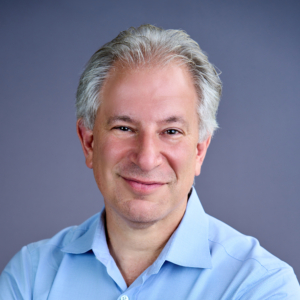
As the first anniversary of the On Human Enterprise blog approaches, I’ve been looking back on some of the most central threads discussed here. One significant line of inquiry has been the question of human performance: what makes people good at things, how people get better and how talent translates into achievement over time.
In the field of HR, a great deal of thinking goes into how people perform in specific jobs and into HR practices like performance management and leadership development programs. While these are worthy enough topics, my own thinking begins from a different place: the perspective of an individual looking to achieve a major purpose over a long time frame, either independently or within an institution. A Short Guide to Achieving Big Things, a distillation of a talk I gave to WEF Young Global Leaders, lays out the essence of this perspective.
With this frame as an anchor, over this past year, I’ve been concerned with three main themes: (1) getting better, (2) becoming more senior, and (3) focus on deeper purpose.
Getting Better
The development of talent is a core mission of the HR field. But by and large, executives in the corporate world don’t think deeply enough about how people actually get better at things – certainly much less deeply than the best athletic coaches or music teachers do. The business world tends to focus primarily on training and matching people to jobs. Compared to the day-in, day-out disciplines of high performance in a job, training is a relatively minor element in the equation of how people develop. Matching people to jobs is critical, but a focus here leaves aside the critical question of what disciplines someone in a job can apply every day to make the most (or fail to make the most) of their experience.
Deliberate practice is perhaps the most crucial of these disciplines. The literature on deliberate practice is immensely valuable and, even though many are to some degree familiar with it, very few people apply this way of thinking relentlessly in their day-to-day lives. What Makes Practice Deliberate lays out the basics of the concept, and Always Be Practicing Something describes the way we think about this at Incandescent.
Several posts from the past year go deeper into the craft of using deliberate practice to drive improvement in any field. Working from the Mind’s Eye zooms in on the process of forming a visualization of how something should go, and then closing the loop on that visualization as work plays out. Josh Waitzkin on “Slowing Down Time” shows a master teacher at work, instructing us on how to break complex skills down and learn in slow motion how to do things that, with greater mastery, take flight in an instant. Deliberate Practice in the Making of Large Things contrasts how the concept of deliberate practice applies to fields in which the “unit of work” has a large span – the longer span of writing a novel or building a company, vs. sinking a jump shot or playing a sonata. The post is largely an excerpt from a wonderful interview with the novelist Haruki Murakami. A reflection on my own development, Three Lines to a Bird, gives a window inside the skills that I’ve been deliberately practicing in my own life.
Becoming More Senior
To become more senior is to relate to one’s work in fundamentally larger and more complex ways. Deliberate practice points the way to a continuous slow arc of improvement in the critical skills that drive excellence in a given field of work, in which many small refinements add up to major growth. Alongside these continuous small steps, people seem to “become more senior” in larger, more discrete and far less frequent jumps.
Going with One’s Grain contrasts differences in thinking style with differences in the level of complexity one can manage. This piece cites the work of Elliott Jaques, whose thinking has given me a much more vivid, practical picture of just how it is that “more senior” people differ. Elliott Jaques, Jackson Pollock and Seeing the Size of People and Problems delves more deeply into this set of questions.
Elliott Jaques’s work on cognitive complexity is descriptive. One of the ways in which I suspect Jaques may have been wrong is that he viewed a trajectory of development along this critical dimension as being almost entirely fixed for a given individual. The work of Bob Kegan and Lisa Lahey points the way to how people might overcome the limiting assumptions that most stand in the way of their growing to live in a larger world. Work and Life: One More Truth explores how his work potentially connects to the debate about work-life balance, framing a principle I call Developing in Counterpoint, in which the questions most central to professional growth will also tend to show up in the personal sphere.
Another way in which one can “lift oneself up” into a more senior way of engaging with the world is by channeling the influence of others. A Life That Emanates from a System of Ideas presents a passage from architectural theorist Bill Hubbard’s beautiful description of what influence can mean, based on his own early exposure to Charles and Ray Eames.
These pieces all represent “riffs” along the way to a more fully developed set of ideas. My colleague Shanti Nayak and I have been working on a way of thinking about what “becoming more senior” means in the context of our work at Incandescent, which I’ll share more about in the blog as our work advances.
Focus on Deeper Purpose
“Better” and “more senior” are capacities that matter in the context of being put in service of some larger purpose in the world. A formulation that has always seemed beautiful to me is the late Aravind founder Dr. Venkataswamy’s question to himself: How do I become a perfect instrument? As I explored in Aravind and the Choice of Great Achievement, “Dr. V” was driven to become the perfect instrument for preventing blindness among the poor. The cause mattered, and the striving to be a more perfect instrument also mattered in itself. In understanding Dr. V’s life – one of the most exemplary lives I know of – it is difficult to disentangle those two. On and Against Striving explores this duality. Louise Gluck’s poem Parable shows the unity that really exists in what can feel like the contradiction between valuing purpose and valuing nonattachment.
For some people, there exists a tension between the purpose that they’re serving in their day-to-day work and a deeper sense of purpose they aspire to weave more fully into the fabric of their lives. Sometimes this is a very specific conflict: I’m doing X and believe I should be doing Y. More often, as I have observed, the conflict is more diffuse: I’m doing X and believe there is another, better Y, but I haven’t yet fully defined Y and don’t quite know where to start. Living Two Stories is my attempt to work through how to analyze and how to take action on this second condition.
Having spent so much of my career in a line of work, management consulting, that so many people pursue for instrumental reasons – prestige, rate of career advancement, compensation – I’m acutely aware of the consequences of placing these factors above the question of focus on a deeper purpose. Advice to a Student explores this in the specific context of consulting, laying out a program of 300 to 400 hours worth of reading, thinking and applying ideas that can serve both as a litmus test of “do I really want to do the work of advising companies?” and a dramatic accelerator of learning in a consulting job. I believe a similar program could be designed for any profession.
I’ve written this post as a kind of “retrospective” in order to invite others’ thinking about these strands of ideas. I’d welcome reach-outs about the themes here and how they relate to ideas others are exploring to take the big questions of talent, development and achievement beyond the usual confines of how corporations engage with them. The three strands here are questions so big that it can feel naïve or presumptuous even to ask them: How do people get better at things? What does it mean for people to “grow,” to become more senior – and how does that happen? How can we be “perfect instruments” of the purposes we care about… and how can one best make the choice about what purpose to serve? I don’t have fully satisfying answers to any of these questions – but hope that by sharing some of these forays of thinking, I can broaden the community of those who ask them.
To reach out about this post, email us at contact@incandescent.com



